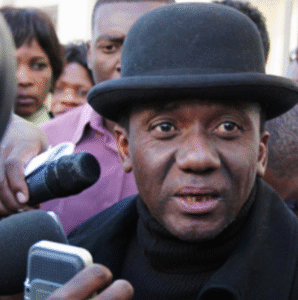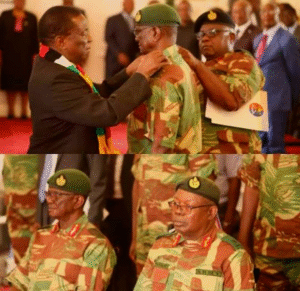MNANGAGWA VS CHIWENGA: FROM BROTHERS-IN-ARMS TO BITTER ENEMIES

Vice-President Constantino Chiwenga stood strongly by President Emmerson Mnangagwa when things looked dark for him. On 6 November 2017, former president Robert Mugabe fired Mnangagwa as Vice-President, pushing him to flee to South Africa. It seemed his political life had ended, but Chiwenga did not abandon him. Instead, Chiwenga risked everything to help Mnangagwa.
Two weeks later, Chiwenga bravely led a military coup against Mugabe. He put himself in danger to make sure Mnangagwa returned home as a hero. Mnangagwa came back to Zimbabwe after Mugabe’s 37 years of terrible rule finally ended. Chiwenga had done the hard work, clearing the way for Mnangagwa to become president.
After Mnangagwa became leader, Chiwenga continued to support him loyally. He stood firmly with him during the disputed elections of 2018 and 2023, helping Mnangagwa stay in power. Chiwenga backed all Mnangagwa’s plans without question, even his Vision2030 policy. He went further, publicly calling Mnangagwa “Munhumutapa,” a powerful historical title used by Shona kings of ancient Zimbabwe. Mnangagwa liked this praise and declared his own birthday, 15 September, as Munhumutapa Day to glorify himself and strengthen his power.
Chiwenga also showed loyalty in front of everyone by kneeling before Mnangagwa at a Zanu PF congress in 2022. This public act of respect showed everyone that he would do anything for his leader. Even when Chiwenga was poisoned and seriously ill, he remained faithful to Mnangagwa, always putting the president first.
However, today things are very different. Mnangagwa now wants a third term as president, breaking promises he made earlier to serve just one term. This has caused a big fight between the two former allies. Chiwenga feels betrayed. He believed it was his turn to become president in 2023. But Mnangagwa is determined not to allow Chiwenga to succeed him. He considers Chiwenga to be below him and refuses to be pushed aside by him.
Since coming to power, Mnangagwa has started to remove people who once supported him. This pattern is common after coups or big changes in government. Leaders like Napoleon in France, Stalin in the Soviet Union, Idi Amin in Uganda, Mobutu in Zaire, and even Mugabe himself removed loyal allies to protect themselves and their power. Mnangagwa is doing the same. He fears betrayal and wants to remove threats to his leadership. The recent removal of Lieutenant-General Anselem Sanyatwe, who played a big role in the 2017 coup, shows Mnangagwa’s determination to clear away potential threats.
But the relationship between Mnangagwa and Chiwenga has never been simple. In the past, Mnangagwa did help Chiwenga too. For example, when Mugabe tried to remove Chiwenga as army commander before the coup, Mnangagwa defended him strongly. Immediately after the coup, Mnangagwa gave Chiwenga great power as Vice-President, Defence minister, and head of war veterans. However, at that time, Mnangagwa had no choice—he needed Chiwenga’s support to stay in control.
Yet overall, Chiwenga has given Mnangagwa much more than he received. Without Chiwenga’s military support, Mnangagwa could never have taken power. It was Chiwenga’s brave actions that forced Mugabe to resign. Chiwenga supported Mnangagwa publicly and privately through difficult times, defending him whenever needed.
Today, Mnangagwa is actively blocking Chiwenga’s path to the presidency. This fight over power has become fierce and dangerous, leading to purges and betrayals. The recent removals of allies like Sanyatwe show how ruthless Mnangagwa can be. Mugabe once warned Chiwenga this could happen, but now the warning has become reality. Zimbabwean politics remain complicated and dangerous, proving again how quickly former brothers-in-arms can become bitter enemies.




